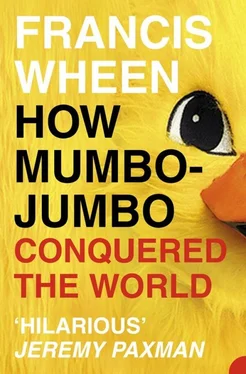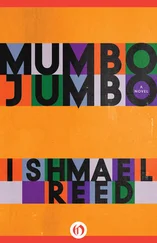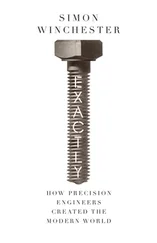Arriving at Heathrow airport, Callaghan is asked by a reporter about ‘the mounting chaos in the country at the moment’. The avuncular smile that earned him the nickname Sunny Jim disappears at once. ‘Please don’t run your country down,’ he admonishes. ‘If you look at it from the outside, you can see you are taking a rather parochial view. I do not feel there is mounting chaos. I don’t think that other people in the world would share the view that there is mounting chaos.’
A few hours later the political editor of the Sun , Walter Terry, files his report of the press conference: ‘Sun-tanned premier Jim Callaghan breezed back into Britain yesterday and asked: Crisis? What crisis?… Not even the threat of up to two million people being laid off work next week worried jaunty Jim.’ The Sun ’s editor, Larry Lamb, adds the coup de grâce by repeating Terry’s pejorative précis in a huge front-page headline: ‘CRISIS, WHAT CRISIS?’
Wednesday 28 March
A day of high parliamentary drama. For the past couple of years Callaghan’s minority Labour government has limped from one crisis to another, kept alive by wily parliamentary manoeuvring and makeshift alliances – first with the Liberals (during the ‘Lib-Lab pact’ of 1977–8) and then with the Scottish and Welsh nationalists, who were cajoled into acquiescence by the promise of a Devolution Bill. On 1 March, however, referendums in Scotland and Wales failed to deliver the support necessary for the home-rule proposals to become law, whereupon the nationalists abandoned Callaghan.
The Ulster Unionists have also backed the government in recent months, but only in return for legislation increasing the number of parliamentary seats in Northern Ireland. When the Bill received the royal assent last week, they too decided there was no longer any advantage to be gained from propping up a wheezing and enfeebled administration. Seizing her opportunity, the Conservative leader Margaret Thatcher has tabled a motion of no-confidence in Her Majesty’s government. If passed, it will precipitate a general election.
The debate is preceded by feverish and often farcical horse-trading. Having won round three Welsh Nationalists by promising a new scheme to compensate coal-miners suffering from lung disease, Callaghan still needs to find two more votes before tonight’s division. The Labour minister Roy Hattersley gives Frank Maguire, the Independent member for Fermanagh and South Tyrone, three bottles of whiskey plus the promise of an inquiry into food prices in Northern Ireland. Some Ulster Unionists try unsuccessfully to trade their votes for a pledge to build an expensive natural-gas pipeline under the Irish Sea.
Opening the debate, Margaret Thatcher says that ‘the government has failed the nation … Britain is now a nation on the sidelines. Rarely in the post-war period can our standing in the world have been lower or our defences weaker.’ Labour has ‘centralised too much power in the state’, paying ‘far too little attention to wealth creation and too much to its redistribution’.
The prime minister, who celebrated his sixty-seventh birthday yesterday, attacks the Conservatives and their ‘lap dogs’ in Fleet Street. He also sneers at the Liberals and Scottish Nationalists for allying themselves with the Tories: ‘The minority parties have walked into a trap … It is the first time in recorded history that turkeys have been known to vote for an early Christmas.’ He concludes with a surprise announcement that old-age pensions will be increased in November: ‘Let need, not greed, be our motto.’
Ill and dying members are brought from their beds, some by ambulance, to be wheeled through the lobbies at 10 p.m. But the seventy-six-year-old Labour MP Sir Alfred Broughton, who suffered a heart attack a week ago, is too weak to leave hospital. If the vote is a tie, the Speaker would be obliged by precedent to exercise a casting vote on behalf of the government. Because of Sir Alfred’s absence, however, the no-confidence motion is passed by 311 votes to 310.
Callaghan, the first British prime minister to have his government brought down by a censure motion since Ramsay MacDonald in 1924, announces that he will seek a dissolution of parliament and a general election as soon as essential business is cleared. ‘Now that parliament has declared itself, we shall take our case to the country.’
Friday 4 May
The Conservatives have won an overall majority of forty-three seats in yesterday’s general election – the biggest margin of victory by any party since 1966. Labour’s share of the poll, at 36.9 per cent, is its lowest since 1931. While Audrey Callaghan moves the family’s belongings out of the back door of 10 Downing Street, her husband leaves by the front door to ride to Buckingham Palace and hand in his resignation to the Queen. He then departs for his Sussex farm, pausing briefly en route to offer commiserations to staff at the Labour Party HQ in Smith Square.
Shortly afterwards Margaret Thatcher is summoned to the palace, where she formally accepts her appointment as prime minister by kissing the monarch’s hands. She is then driven in a black Rover to Downing Street. Looking rather subdued and slight among the swirl of reporters and burly police officers, she quotes a favourite phrase of her former colleague Airey Neave, who was killed by a car-bomb at the beginning of the election campaign: ‘There is now work to be done.’ Before disappearing through the door of No. 10 to get on with it, she also recites ‘some words of St Francis of Assisi, which I think really are just particularly apt at the moment’:
Where there is discord may we bring harmony,
Where there is error may we bring truth,
Where there is doubt may we bring faith,
And where there is despair may we bring hope.
Introduction Dare to know
The rapid progress true Science now makes, occasions my regretting sometimes that I was born too soon. It is impossible to imagine the height to which may be carried, in a thousand years, the power of man over matter. We may perhaps learn to deprive large masses of their gravity, and give them absolute levity, for the sake of easy transport. Agriculture may diminish its labour and double its produce; all diseases may by sure means be prevented or cured, not excepting even that of old age, and our lives lengthened at pleasure even beyond the antediluvian standard. O that moral science were in as fair a way of improvement, that men would cease to be wolves to one another, and that human beings would at length learn what they now improperly call humanity!
Letter from BENJAMIN FRANKLIN to Joseph Priestley
(8 February 1780)
In September 1784, a Berlin magazine invited several German intellectuals to answer the question ‘What is Enlightenment?’ They included the philosopher Immanuel Kant, who rose to the challenge with a vigour and clarity not always evident in his lengthier works:
Enlightenment is man’s emergence from his self-incurred immaturity. Immaturity is the inability to use one’s own understanding without direction from another. This immaturity is self-incurred if its cause is not lack of understanding, but lack of resolve and courage to use it without another’s guidance. Sapere aude! Dare to know! That is the motto of Enlightenment.
The sprightly optimism of this venerable professor, then already in his sixties, derived from his belief that a revolution in human history was imminent. In the Critique of Pure Reason , which had been published three years earlier and established his reputation throughout Europe, Kant had sought to reconcile the two dominant schools of modernist philosophy – the British empiricist approach of Bacon, Locke and Hume (who held that knowledge was the product of experience and experiment, and thus subject to amendment), and the continental rationalism exemplified by Descartes and Spinoza, which maintained that certainty could be achieved by inferential reasoning from first principles. What these traditions had in common was far more important than what divided them, and by incorporating elements from both he was able to demolish the pretensions of religion to superior knowledge or understanding. ‘The critical path alone is still open,’ he announced after almost seven hundred pages, having cleared away the metaphysical obstacles.
Читать дальше












